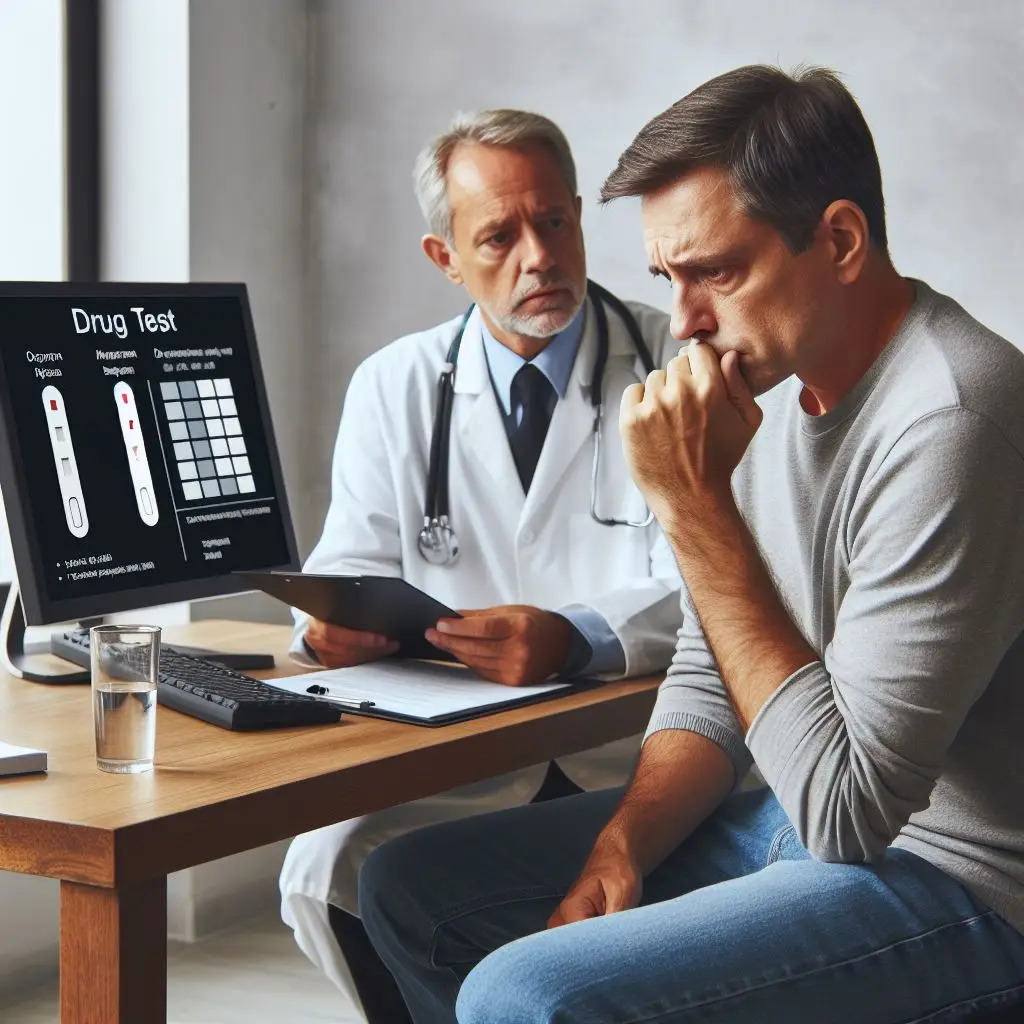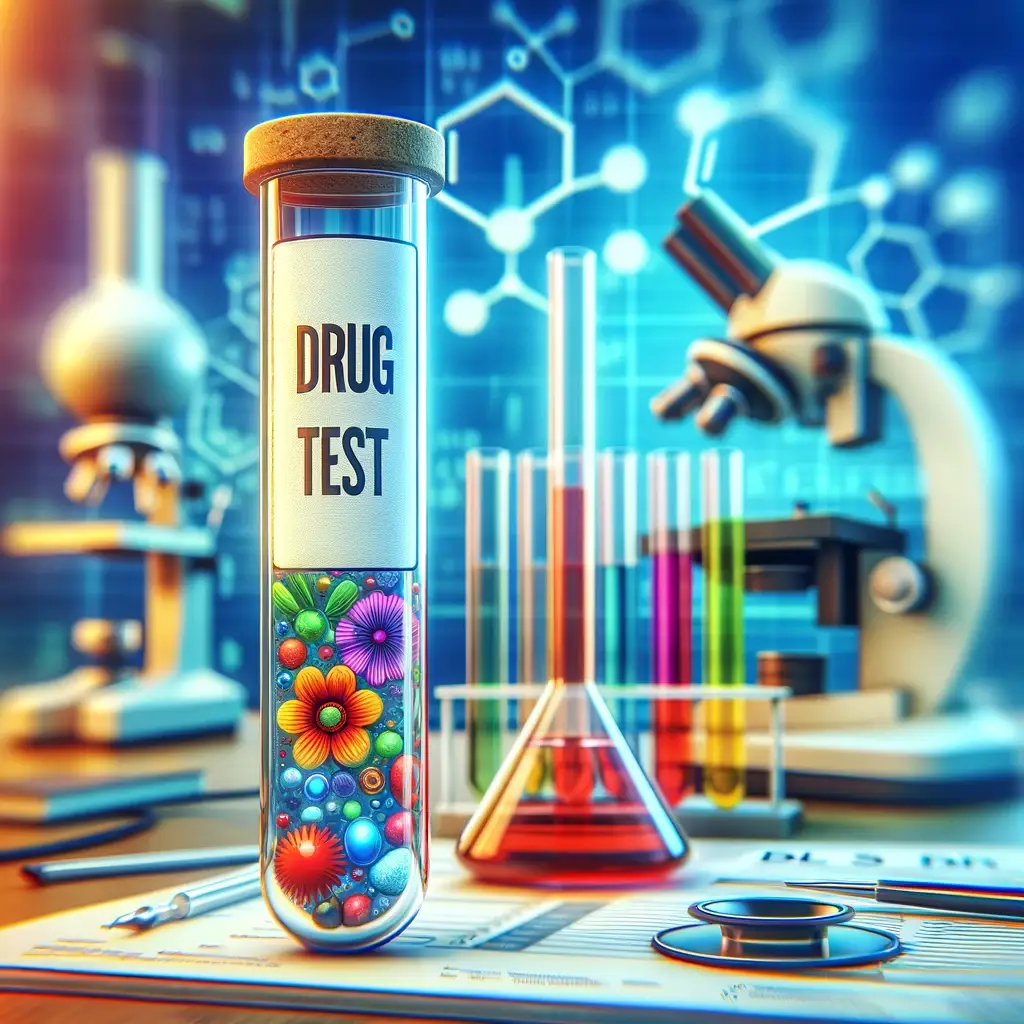False positive drug test results can be a nightmare, affecting both personal lives and professional careers. These erroneous outcomes can occur for various reasons, including medications, foods, and other substances. This comprehensive guide will explore the causes of false positives, the steps to dispute them, and preventive measures to minimize the risk. Additionally, we’ll delve into what drug tests can detect to provide a better understanding of the process.

Understanding False Positives
A false positive drug test happens when a test incorrectly indicates the presence of a drug or substance in a person’s system. It’s essential to be aware of this possibility and take steps to prevent and address it.
Common Reasons for False Positives
Drug tests are essential for various personal, professional, and legal purposes. However, false positive results can lead to unnecessary complications and concerns. Understanding the common reasons for false positives is crucial for addressing and preventing them. Here are three key factors contributing to false positives:

Medications
False positives often occur due to specific medications in an individual’s system. Certain prescription and over-the-counter drugs can trigger inaccurate test results:
- Prescription Medications: Some prescription drugs contain substances that are structurally similar to illegal drugs and may cross-react with drug tests. For example, certain painkillers, anti-anxiety medications, and sleep aids can cause false positives.
- Over-the-Counter Medications: Common over-the-counter medications like cold remedies, which may contain ingredients like pseudoephedrine or dextromethorphan, can lead to false positive results.
Foods
Surprisingly, what you eat can also influence drug test outcomes. Some foods contain compounds that mimic illegal drugs, causing false positives. Two well-known examples include:
- Poppy Seeds: Consuming foods like poppy seed bagels or muffins can produce a positive result for opiates. Poppy seeds naturally contain trace amounts of morphine and codeine, substances found in some illegal drugs.
- Hemp-Based Products: Products made from hemp, such as certain hemp oils or snacks, can contain trace amounts of THC, the psychoactive compound found in marijuana. In some cases, consumption of these products has resulted in false positives for THC.
- Tonic Water: Tonic water, a popular mixer for alcoholic beverages, contains quinine, which may lead to false positives for drugs like methamphetamine when consumed in large quantities.
- Balsamic Vinegar: Some high-quality balsamic vinegar may contain trace amounts of alcohol, potentially causing a false positive on tests that screen for alcohol use.
Other Substances
Beyond medications and foods, various non-drug substances can contribute to false positive drug test results. It’s important to be aware of these potential triggers:
- Herbal Supplements: Some herbal supplements and teas may contain compounds that mimic the effects of illegal drugs, causing a false positive. Common culprits include herbal remedies for relaxation, sleep, or pain relief.
- Secondhand Smoke: While less common, exposure to secondhand marijuana smoke in a poorly ventilated environment can result in trace amounts of THC entering your system, potentially leading to a false positive for THC.
What Can Drug Tests Detect?
Before diving into the steps to dispute a false positive result, it’s essential to understand what drug tests can detect. Standard drug tests typically look for the following substances:
Illegal Drugs
Drug tests are primarily designed to identify illegal substances, which include:
- Marijuana (THC): Drug tests can detect the presence of THC, the psychoactive compound found in marijuana. It’s one of the most commonly screened substances.
- Cocaine: Cocaine is another frequently tested illegal drug. Drug tests can identify its metabolites in urine, blood, or hair samples.
- Heroin: Heroin and its metabolites can be detected by drug tests, allowing for the identification of opioid use.
- Amphetamines: Tests can also identify amphetamines, which are central nervous system stimulants commonly abused.
- Opioids: Opioid drugs like morphine, codeine, and oxycodone can be detected in various drug tests, aiding in the detection of opioid use.
Prescription Medications
Some drug tests may screen for specific prescription medications, particularly those with a high potential for abuse or misuse. These may include:
- Opioid Painkillers: Certain drug tests can identify the use of prescription opioids like oxycodone, hydrocodone, and fentanyl.
- Benzodiazepines: These drugs, prescribed for anxiety and sleep disorders, can be detected in drug tests.
- Stimulants: Prescription stimulants used to treat conditions like ADHD, such as Adderall and Ritalin, may also show up in tests.
Over-the-Counter Medications
While drug tests primarily focus on illegal and prescription drugs, some common over-the-counter medications can produce positive results under certain circumstances:
- Pseudoephedrine: This decongestant, found in many cold medications, can potentially trigger a positive result for amphetamines.
- Dextromethorphan (DXM): Present in cough syrups, DXM may lead to a false positive for opioids in some drug tests.
Alcohol
Standard drug tests do not typically detect alcohol use. Instead, alcohol testing usually involves separate methods, such as breathalyzers or blood tests. However, some specialized tests may include alcohol screening.
Other Substances
Specialized drug tests may screen for additional substances based on specific needs or requirements, such as workplace safety or sports drug testing. These tests can include:
- Performance-Enhancing Drugs: In sports drug testing, tests can detect substances like anabolic steroids, human growth hormone (HGH), and erythropoietin (EPO).
- Synthetic Drugs: Testing may target synthetic drugs like synthetic cannabinoids (Spice/K2) or designer drugs.
Best Practices for Disputing a False Positive
Encountering a false positive drug test result can be distressing, but taking the right initial steps is crucial to address the issue effectively. Here are two key actions to take when faced with a false positive drug test:
Proactive Communication
Proactively communicating with the testing entity is essential to prevent misunderstandings and promptly address the false positive result. Follow these guidelines:
- Notify Testing Entity: Contact the testing entity immediately after receiving the false positive result. Depending on the test context, contact your employer, testing facility, or relevant authority.
- Disclose Medications and Supplements: Inform the testing entity about any medications, prescription or over-the-counter, and dietary supplements you are taking that could affect the test results.
- Provide Details: Offer detailed information about the substances in question, including their names, dosages, and the reasons for their use. This transparency can help testing entities better understand your situation.
Record Keeping
Maintaining accurate records of your medications and supplements is crucial for effectively disputing a false positive drug test result. Here’s how to manage your records:
- Create a Medication Log: Establish a comprehensive medication log that includes the names of all medications and supplements, their dosages, and the dates you started taking them.
- Include Documentation: Keep copies of prescription labels, receipts for over-the-counter purchases, and any relevant medical documentation. These documents provide evidence of your medication regimen.
- Update Regularly: Ensure your records stay up-to-date. Whenever you start or stop a medication, change the dosage, or add a new supplement, promptly update your medication log and retain supporting documents.

Disputing the Results
Disputing the results of a drug test is a critical process for individuals who believe they have received a false positive result. Understanding the steps to dispute such results is essential for employment, legal, or personal reasons. Here are three key steps to follow when disputing the results of a drug test:
Formal Dispute Process
Gather and Preserve Evidence
The first step in disputing a false positive drug test is to gather and present compelling evidence that supports your claim of innocence. This evidence can include:
- Prescriptions and Medication Records: If you are taking any prescription medications, provide copies of your prescriptions and records showing when you began taking them.
- Receipts and Invoices: Keep receipts or invoices for any over-the-counter medications or supplements you’ve purchased, along with the purchase dates.
- Doctor’s Notes: If you have consulted with a healthcare provider or specialist about your medications or supplements, request a note or statement from them explaining the potential for false positives.
- Witness Statements: If someone can vouch for your medication use or dietary habits, their statements can be valuable.
Consulting with Medical Professionals for Support
Seek the support and expertise of medical professionals who can verify your claims of innocence. Here’s how to do it effectively:
- Contact Your Healthcare Provider: Contact your primary care physician or the specialist who prescribed your medication—request documentation explaining the medication’s potential to trigger a false positive.
- Consult a Toxicologist or Pharmacologist: If necessary, consult a toxicologist or pharmacologist who can provide expert opinions on the likelihood of a false positive based on your circumstances.
- Obtain Expert Statements: Request written statements or affidavits from these medical professionals to strengthen your case. Their expert opinions can carry significant weight in your dispute.
Requesting a Retest if Possible
Some testing entities may permit individuals to request a retest to validate the accuracy of the initial result. Here’s how to navigate the retest process:
- Review Testing Policies: Carefully review the testing entity’s policies to determine if retests are allowed and under what circumstances.
- Formal Request: If retesting is an option, formally request it in writing, explaining your reasons for seeking a retest.
- Prepare for the Retest: If granted a retest, ensure that all necessary precautions are taken to prevent any potential sources of contamination or interference with the results.
Legal Considerations When Facing False Positive Drug Test Results
When confronted with false positive drug test results that have profound personal or professional consequences, it’s essential to be aware of the legal considerations involved. Understanding your rights and options is crucial. Here are two key legal considerations to keep in mind:
Seek Legal Advice
One of the most important steps when dealing with false positive drug test results is to seek legal advice. Consult with an attorney who specializes in employment law or drug testing issues. Here’s what to do:
- Choose an Experienced Attorney: Look for an attorney with a strong track record in handling cases related to drug testing disputes or employment law.
- Schedule a Consultation: Arrange a consultation with the attorney to discuss your situation and understand your legal rights and options.
- Share Documentation: Provide your attorney with all relevant documentation, including test results, medical records, and any evidence supporting your claim of innocence.
- Evaluate Legal Strategies: Your attorney can assess the strength of your case and help you determine the most suitable legal strategy based on the information you provide.
Document Everything
Thorough documentation is crucial when disputing false positive drug test results. This documentation can be invaluable in legal proceedings. Here’s how to approach it:
- Maintain a Detailed Record: Keep a comprehensive record of all interactions related to the drug test and its consequences. This includes communication with the testing entity, your employer, healthcare providers, and legal counsel.
- Preserve Evidence: Safeguard all evidence related to your dispute, such as medication receipts, doctor’s notes, witness statements, and written communication.
- Record Legal Advice: Document any advice or recommendations provided by your attorney during consultations or discussions. These records can help you make informed decisions throughout the process.
- Stay Organized: Keep your documentation organized and easily accessible. A well-organized record can help you present a compelling case if legal action becomes necessary.
Preventive Measures
Minimizing the risk of false positive drug test results is crucial for individuals undergoing testing, whether for employment, legal compliance, or personal reasons. Taking proactive measures can reduce the chances of encountering erroneous results. Here are three key preventive measures:
Educate Yourself
One of the first steps in avoiding false positive drug test results is to educate yourself about substances that can interfere with test outcomes. Here’s what to consider:
- Research Medications and Supplements: Before starting any new medication or supplement, research its ingredients and potential interactions with drug tests. Pay attention to substances that might cross-react with those targeted in the test.
- Consult Healthcare Providers: When prescribed a new medication, ask your healthcare provider about any potential effects on drug test results. They can guide whether the medication could trigger a false positive and suggest alternatives if needed.
- Stay Informed: Stay updated on the latest information regarding substances that could influence drug tests. Reliable sources include healthcare professionals, pharmaceutical labels, and reputable medical websites.
Regularly Update Healthcare Providers
Effective communication with your healthcare provider is vital to prevent false positive drug test results. Follow these steps:
- Maintain Open Dialogue: Inform your healthcare provider about all prescription and over-the-counter medications and any supplements you take during each visit.
- Provide Updates: Whenever your medication regimen changes, update your healthcare provider promptly. This includes starting or discontinuing medications or adjusting dosages.
- Ask Questions: Don’t hesitate to ask questions about your medications’ potential interactions or side effects. A well-informed healthcare provider can help you make informed decisions.
Consider Alternatives
In cases where medication is known to trigger false positive drug test results and alternatives are available, exploring those alternatives may be a practical solution:
- Consult with Healthcare Provider: Discuss your concerns about a medication’s potential for false positives with your healthcare provider. They can evaluate whether switching to an alternative medication is medically feasible and safe.
- Request Non-Interfering Medications: If alternative medications do not cross-react with drug tests, consider requesting these options when discussing treatment with your healthcare provider.
- Balance Benefits and Risks: In some cases, weigh the benefits of a medication against the risk of false positive results. Work closely with your healthcare provider to make informed decisions about your treatment plan.
FAQs
What should I do if I receive a false positive drug test result?
Immediately request a confirmation test, review your medications, and document all relevant information.
Can prescription medications cause a false positive drug test?
Yes, certain prescribed medications can trigger false positives. Inform the test administrators about any prescriptions.
What are my legal rights if I get a false positive drug test?
You can dispute the result, request a confirmation test, and seek legal advice if necessary.
How can I prevent a false positive drug test in the future?
Inform test administrators of all medications and supplements, avoid certain foods, and follow best practices for accurate results.
Conclusion
False positive drug tests can be disruptive and damaging. However, you can protect your rights and reputation by understanding the causes, taking proactive steps, and being prepared to dispute results when necessary. Stay informed, communicate openly, and maintain thorough records to navigate this challenging situation effectively.
References:
- What Can Cause a False Positive Drug Test
- What Medications Can Cause False Positives on Drug Tests?
- What drugs are likely to interfere with urine drug screens?
- Amphetamine Screen (Urine)
- False positive’ field drug tests lead to wrongful convictions
- Don’t Fall Victim to a “False-Positive”
Ready to unlock the secrets of background checks and stay ahead of the curve? Dive into our blog at https://gcheck.com/blog now! Join the conversation, empower yourself, and make informed decisions with the latest insights and trends. Don’t miss out – explore our blog today!






